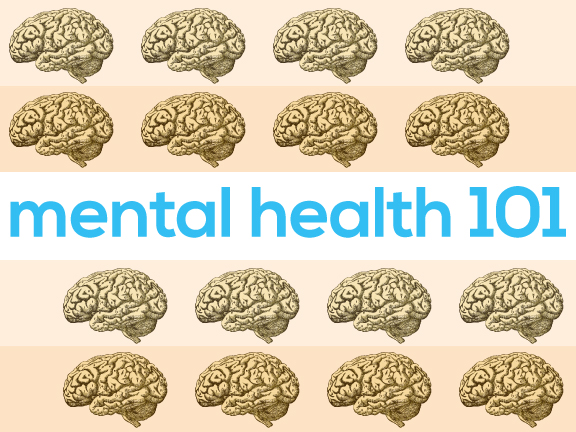Mental Health 101: Developing Coping Mechanisms

Mental Health 101
The development of healthy coping mechanisms is essential for everyone, regardless of how mentally healthy you may be. Everyone experiences difficult moments in life, and everyone needs to find healthy ways to cope.
However, learning healthy coping skills and unlearning unhealthy ones can seem like a paramount task. So what exactly are coping mechanisms, and how do you distinguish the good from the bad?
What are coping mechanisms?
Psychologists Richard Lazarus and Susan Folkman define coping mechanisms as cognitive and behavioral efforts which aim to handle internal and external demands that are considered taxing or demanding. Basically, coping mechanisms are strategies used by people in the face of stress to help manage emotions.
Everyone uses different methods to cope that are unique to their personalities and personal needs. Coping mechanisms help people process and handle difficult situations while maintaining their emotional well-being. Utilizing healthy coping mechanisms will help you improve your mental state and learn how to effectively deal with a variety of stressors in different areas of your life, including work, school, and interpersonal relationships.
Healthy and unhealthy coping mechanisms
Now that you know what coping mechanisms are, how can you tell which ones are good, and which ones aren’t? Unhealthy coping mechanisms may seem like they’re good ways to cope on the surface, but they should help you manage stress without creating new levels of stress later on. Common examples of unhealthy coping mechanisms include smoking, compulsive spending, overeating, and consuming too much caffeine or alcohol.
Managing stress in unhealthy ways can be detrimental to your physical and mental health, so it’s important to focus on developing healthy ways to cope with stress. Remember that what works for someone else might not work for you, so try exploring different strategies to see what’s best. Healthy coping mechanisms are often centered around diverting your attention away from the stressor in non-harmful ways. Examples include writing and drawing, taking a shower, going for a walk, and reading.
Developing coping mechanisms
The first step for incorporating healthy coping mechanisms into your life is to step back and realize when you’re facing a stressful situation. On the same note, be critical of the ways you’re using to cope currently — once you realize your current skills aren’t doing the job, you can start replacing them with better skills.
Consider seeing a therapist to learn how to talk through your problems. This will challenge you to verbally express the challenges you’re going through, and your therapist will be able to objectively tell you whether your current coping skills are working. Long-term therapy is a great way to track your progress. Additionally, your therapist will be able to hold you accountable for effectively handling stressors in your life and can offer advice on how to further strengthen your mental state.
If you’re interested in therapy, but unsure how to begin, try asking friends and family for recommendations. If you’re a teenager or you suspect that your teenager is suffering from unhealthy coping mechanisms, look into a nearby teen depression treatment center for resources. On the other hand, if you’re an adult looking for a therapist near you, a simple Google search will yield a variety of local results.
Developing healthy coping mechanisms can seem like an impossible task, but the payoff is extremely high. You’ll be able to utilize your newly learned coping skills to overcome obstacles in every area of your life, and you’ll see vast improvements in your mental and emotional health. All in all, remember that you’re not alone, and that everyone faces stressful situations in life that require coping.





